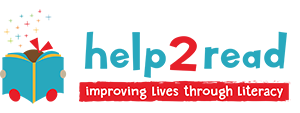Readers are leaders – Nelson Mandela & the power of reading in shaping future leaders
12 June, 2018
“Readers are leaders”. It’s a saying that’s often used to inspire children to read and rightly so. Books play a powerful role in developing the young minds of future leaders and it’s not hard to see why when you begin to unpack the many benefits of reading.
Reading broadens a child’s understanding of the world and increases their ability to foster empathy and compassion for another. We can walk in someone else’s shoes and experience a culture so different from our own, all within the pages of a book. It’s for this reason that stories have a wonderful way of teaching children about diversity, acceptance and the beauty in the differences of others. Books also spark curiosity in children, encouraging them to question. It’s with open minds and curiosity that we are able to reach across differences and create friends, instead of enemies.
What’s more is that reading fosters resilience, develops problem-solving skills, allows one to discover new things and enhances creativity. It also helps develop basic language skills crucial for success in society. Whether it is in finding a job, articulating your thoughts appropriately or having the confidence to write a CV. Everyone needs the basic ability to read road signs, law binding contracts or simple instructions. If our young people are literate, they are empowered and an empowered people are capable of creating change.
South Africa has a rich history of men and women that have pioneered change in their communities and across the country. One such leader, and likely the most iconic of all, is Nelson Mandela. This year we celebrate 100 years since the birth of Mandela with a mandate to “Be The Legacy”. It is apt to remember his legacy, which calls us to use our gifts and tools, wherever we are stationed in life, in a way that dismantles the unequal structures of power and protects the most vulnerable.
What better way than to stand for education and the end of a literacy crisis that has plagued our nation. For it was our first democratically elected president, Mr Nelson Mandela himself who stated, “Education is the most powerful weapon which you can use to change the world.”
Nelson Rolihlahla Mandela was a well-educated man who enjoyed reading and was a strong believer in lifelong learning. He and friend Oliver Tambo opened the first black legal practice in South Africa, giving affordable and often free advice to black people who could otherwise not afford it during apartheid. But then Nelson Mandela was imprisoned for almost three decades as a political prisoner, named a terrorist against the then apartheid government.
It is sometimes in our darkest hours that we find the greatest comfort in words; words from loved ones, familiar authors and hope found in religious texts. However, once moved to Robben Island, an isolated prison off the coast of Cape Town, the political prisoners like former President Nelson Mandela, Govan Mbeki, and Ahmed Kathrada, were not allowed reading material, or visits from the prison library. How then did these men and particularly Mandela keep a sense of connection while staying focused on the struggle to end apartheid and change our nation forever?
Thanks to a quick-thinking political prisoner, Surinarayan Kala Venkatrathnam, the complete works of Shakespeare was smuggled into the prison disguised as a Hindu religious text. This book became known as the ‘Robben Island Bible’ and was circulated around the prison where many political leaders read and took solace in the 400-year-old text. Some have said it helped them through their darkest days.
It was not a political manifesto or a biography that kept Mandela company but the fictional plays that struck a chord within him and allowed him to stay resilient and connected to the people and the cause. Perhaps it was in the shared values found in the stories, about the political and social problems that were explored through Shakespeare’s plays, that inspired Mandela and kept the hope alive within his heart.
In the ‘Robben Island bible’ about 34 prisoners signed and dated next to certain paragraphs or pages that had meant something to them. It is fascinating to note that Mandela signed next to a paragraph from the play Julius Caesar:
“Cowards die many times before their deaths;
The valiant taste of death but once.
Of all the wonders that I yet have heard,
It seems to me most strange that men should fear
Seeing that death, a necessary end,
Will come when it will come.”
These lines sum up so much of the resilience in Nelson Mandela and how he chose to live in and out of prison with a grand conviction that he was right and the apartheid government was wrong. This led to the making of a leader who was valiant and prepared to die for the ideals he held and in turn saw the dismantling of apartheid.
Reading is not simply about collecting data as some would say but it is about something greater taking place in an individual. As our young people grasp for identity, meaning and worth is it not possible to hope that they would find it in the pages of a book that encourages them to stand out and up for such ideals that once inspired Mandela.
Let us raise a generation of readers who lead with great ability to empathise with others, who creatively problem solve and who are empowered with a skill that will serve them in every capacity. It is not about the number of resources available to our students, as we see with the ‘Robben Island Bible’, but perhaps it is in the quality and in the hands that help our next generation read and lead.

Registered SA Non-Profit 063-979 PBO 930027054 UK Charity Reg No. 1109567 Registered Office: Oak Farm Cottage, Mill Street, Gislingham, Suffolk, IP23 8JT





